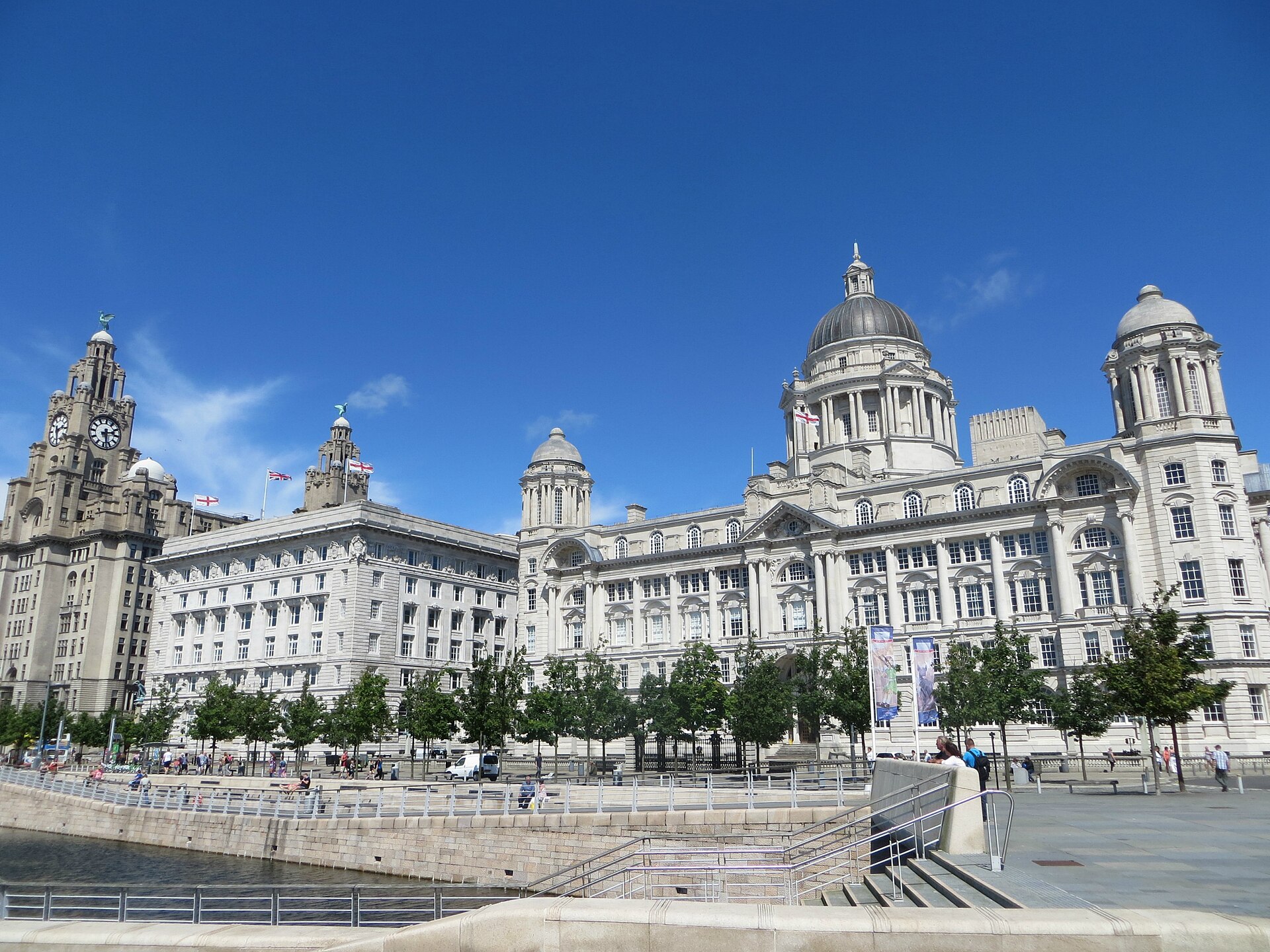Liverpool
Liverpool is a cathedral, port city, and metropolitan borough in the metropolitan county of Merseyside, England. It had a population of 496,770 in 2022.[3] The city is located on the eastern side of the Mersey Estuary, adjacent to the Irish Sea, and is approximately 178 miles (286 km) from London. Liverpool is the fifth largest city in the United Kingdom, the largest settlement in Merseyside, and part of the Liverpool City Region, a combined authority with a population of over 1.5 million.[5]
Liverpool was established as a borough in 1207 in the county of Lancashire and became a significant town in the late seventeenth century when the port at nearby Chester began to silt up. The Port of Liverpool became heavily involved in the Atlantic slave trade, with the first slave ship departing from the town in 1699. The port also imported much of the cotton required by the neighboring Lancashire textile mills and became a major departure point for English and Irish emigrants to North America. In the 19th century, Liverpool rose to global economic importance at the forefront of the Industrial Revolution and built the first intercity railway, the first non-combustible warehouse system (the Royal Albert Dock), and a pioneering elevated electrical railway; it was granted city status in 1880. In common with many British cities, the city entered a period of decline in the mid-20th century, though it experienced regeneration after its selection as the European Capital of Culture in 2008.[6][7]
Liverpool's modern economy is diversified. It has sectors such as tourism, culture, maritime, hospitality, healthcare, life sciences, advanced manufacturing, creative, and digital.[8][9][10] The city contains the second-highest number of national museums, listed buildings, and listed parks in the UK, with only London having more.[11] The city is often used as a filming location due to its architecture and was one of the top five cities in the UK most visited by overseas tourists in 2022.[12] It is England's only UNESCO City of Music and has produced many notable musical acts, most notably the Beatles, while musicians from the city have released more UK number-one hit singles than anywhere else in the world.[13] It has also produced many actors, artists, poets, and writers. In sports, the city is known as the home of Premier League football teams Everton FC and Liverpool FC. The city's port was the fourth-largest in the UK in 2023,[14] and numerous shipping and freight lines have headquarters and offices there.
Residents of Liverpool are often called "Scousers" in reference to scouse, a local stew made popular by sailors in the city, and the name is also applied to the distinct local accent. The city has a culturally and ethnically diverse population and historically attracted many immigrants, especially from Ireland, Scandinavia, and Wales. It is the home of the earliest black community in the UK, the earliest Chinese community in Europe, and the first mosque in England.[15]








